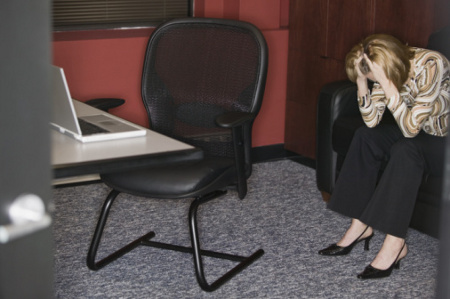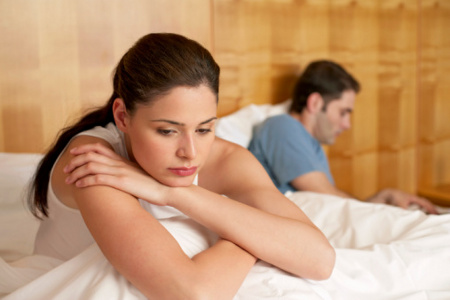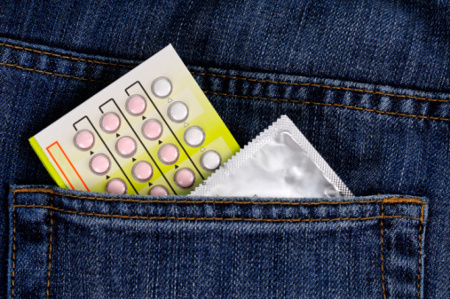Ten Menstrual Cycle Myths
0 Comments
Never work in your garden, touch a fruit tree or water plants
One old wives’ tale says that a woman should not touch a fruit tree while she is menstruating. She will cause the fruit on the tree to spoil. In ancient Rome, Pliny the Elder wrote in his Natural History, that bees left the hives, mares miscarried and corn in the fields withered at the touch of a menstruating woman. My Italian grandmother believed and would warn me, not to water houseplants while I was menstruating as this would somehow cause the plants to die. Photo: Getty Images

A menstruating woman could cause wine to turn to vinegar
In Europe, only a few decades ago, it was believed that menstruating women could turn wine to vinegar and, if involved in the process of brewing beer, could ruin the product. In 1919, Professor B. Schick stunned the world of Viennese gynecology with his concept of menotoxin. He proposed that a woman’s menstrual flow contains a poison, which he labeled menotoxin. He believed the toxin was at the root to folklore that menstruating women caused wine to spoil and flowers to wilt. Photo: Getty Images

While menstruating, women are more emotional and cannot function normally at work
Back in 1981, a survey of Americans found that over half of the respondents thought that women were more emotional while menstruating. About one quarter of the more than 100 people questioned believed that women cannot function normally or do their work as well during their menstrual periods. Not surprisingly, more men than women expressed these beliefs. To investigate these beliefs, studies were done that involved task performance during the entire menstrual cycle. No evidence of premenstrual or menstrual decline was found in mental skills or physical performance. Photo: Getty Images

You should not bathe or wash your hair during menstruation
One myth is that bathing will increase or slow your menstrual flow. In some cultures, an old wives’ tale says serious consequences, even cancer, will be suffered if you bathe or shower on the first day of a period. Thankfully, there is no truth to these warnings. If anything, you may want to bathe more often, to feel as fresh and clean as possible to avoid unpleasant odors during menstruation. Photo: Getty Images

You should not have sex
This is a matter of personal preference, but it is possible to have sex during your period. There is no evidence that sex during menstruation is unhealthy or dangerous. Photo: Getty Images

You cannot get pregnant if you have sex during your period
It is a fallacy that a woman cannot become pregnant if she has sex during her period, says Suzanne Merrill-Nach, M.D., a fellow of the American Congress of Obstetricians and Gynecologists. For women, whose menstrual cycle is less than 28 days, the risk of getting pregnant is higher, since sperm can live for about five days. Photo: Getty Images

You should not go swimming during your period
One myth warns that a woman should not go swimming during her menses as others who use the facility will be cursed. This myth may have originated when tampons were not yet available. Swimming during a period is safe, but it is important to use tampons or menstrual cups. Sanitary pads are ineffective in water. Tampons need to be changed before and after swimming. Photo: Getty Images

Your period should only last seven days
The menstrual cycle is different for each woman. Generally, menstrual flow lasts 3 to 7 days, with an average of 5 days for most women. The menstrual cycle begins with the first day of bleeding and this is counted as day one. The average cycle length is 28 days, but in reality, the usual range is 25 to 36 days. It is normal for the number of days in each cycle to vary monthly. However, it is important to see your doctor if your period comes less than 21 days or more than 35 days after the onset of your last period. See your doctor if your period is frequently irregular, lasts more than one week, or your flow is heavier than normal. Photo: Getty Images

Virgins should not use tampons
This myth purports that because a tampon can tear a woman's hymen, a thin mucous membrane that partially covers and protects the opening of the vagina, she is no longer a virgin when it tears. The hymen can actually tear or stretch from several activities, like horseback riding, riding a bicycle, or doing the splits. Virginity is based on whether or not a person has had sexual intercourse. Photo: Getty Images

You lose a lot of blood during your period
Dr. Merrill-Nash explains that the amount of flow during a woman's period will depend on the length of her cycle and whether or not she is on oral contraceptives. While the amount is variable, on average, most women normally lose less than three ounces of blood with each period. If you soak through a pad or tampon every hour, or use more than 10 feminine products each day, you'll want to contact your doctor. Excessive bleeding or long periods may or may not be a cause for concern, but it's very important to discuss this with your doctor. Photo: Getty Images
Add a CommentComments
There are no comments yet. Be the first one and get the conversation started!